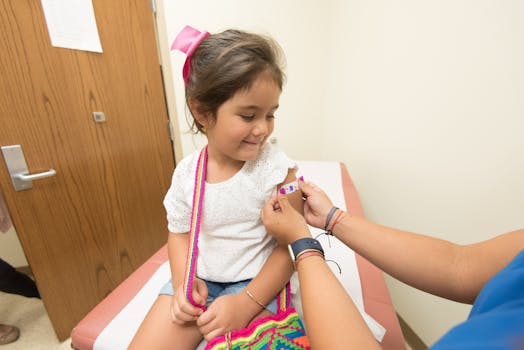RFK Jr's vaccine panel to review long-approved jabs for children
The controversial anti-vaccine activist and son of former senator Robert F. Kennedy Sr., RFK Jr., is now heading a panel of scientists that will review the long-approved COVID-19 vaccinations for children.
The announcement, which sparked widespread criticism, came after the FDA last week announced its own review of the Pfizer vaccine for children ages 5-11. The agency intends to decide whether the risk of rare cases of heart inflammation warrants additional warnings on the label for this age group.
RFK Jr. has repeatedly expressed skepticism about the safety of vaccines and has frequently spread misleading information about them. His appointment to the panel raises questions about the impartiality of the review.
FDA Review of Pfizer Vaccine
The FDA's review follows a recent Centers for Disease Control and Prevention (CDC) recommendation to give an additional dose of the mRNA vaccine to adolescents aged 12-17 who are immunocompromised.
According to the CDC, reports of heart inflammation cases among younger age groups, particularly in males, are rare, and the benefits of vaccination still outweigh the risks for all ages.
The FDA review is set to begin soon and will involve a panel of experts to assess the risk of heart inflammation in young children.
RFK Jr.'s History of Vaccine Skepticism
RFK Jr. has been a prominent voice in the anti-vaccine movement, repeatedly claiming that vaccines cause autism, despite extensive scientific evidence to the contrary.
He has spoken at anti-vaccine rallies, endorsed books promoting conspiracy theories about vaccines, and even appeared in a film that links vaccination to the death of children.
His appointment to the panel reviewing the Pfizer vaccine for children has raised concerns about the potential for political interference in scientific decisions.
Scientific Integrity in Question
Many public health experts and scientists have criticized the appointment, stating that it undermines the impartiality and credibility of the review process.
They argue that having someone with a known anti-vaccine stance heading a scientific panel reviewing vaccine safety creates a conflict of interest and raises questions about the integrity of the process.
It remains to be seen how this recent development will impact the public's trust in vaccine recommendations and the ongoing efforts to combat vaccine misinformation.




